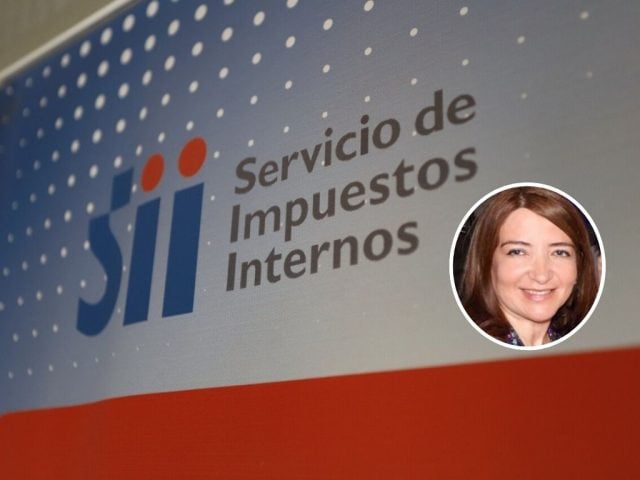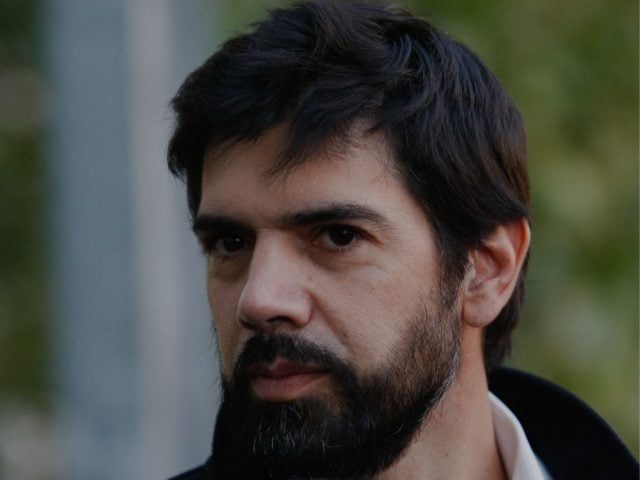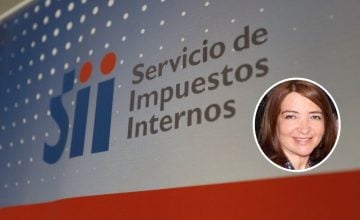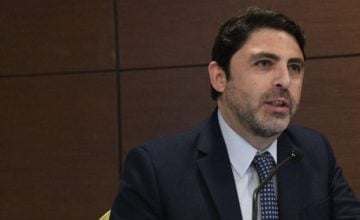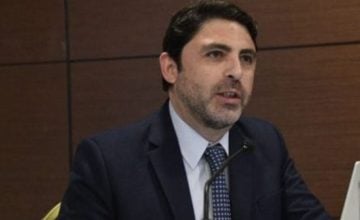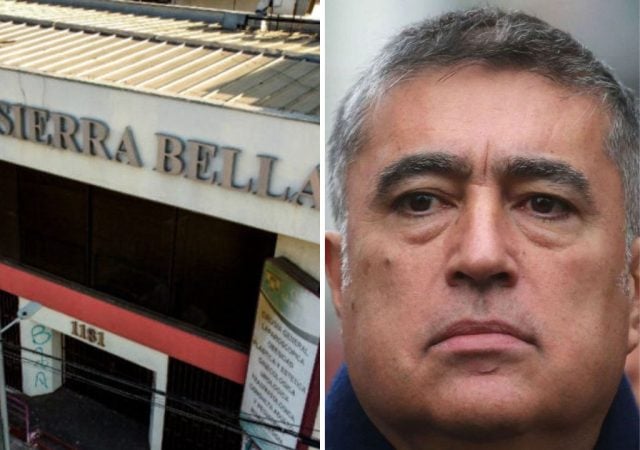Original article: SII destituye a exjefa de gabinete por “perdonazo” irregular de $22.700 millones a sociedad de la familia Fernández León
SII Unseats Former Chief of Staff Over Irregular Tax Forgiveness of $22.7 Billion to Fernández León Family’s Company
The Internal Revenue Service (SII) has ordered the dismissal of Elena Amaya, former chief of staff to the agency’s then-director Fernando Barraza, after establishing her involvement in an irregular tax forgiveness amounting to $22.743 billion in favor of Inversiones Holding Limitada, owned by the Fernández León family, shareholders of companies such as Entel, Consorcio, and Pucobre.
The resolution issued on October 15, 2025, by Álvaro Del Barrio, the SII’s Internal Control Deputy Director, concluded that Amaya “severely breached the principle of administrative integrity” by improperly intervening against fiscal interests while abusing her position within the agency.
According to the investigation report obtained by Reportea, Amaya was accused of “inappropriately intervening, to the detriment of fiscal interests, by leveraging her role within the SII, and coordinating with other Cabinet members, exerting undue pressure on those responsible for institutional decisions.”
The official, who has served the institution for 31 years, has already filed an appeal, which will be resolved in the coming weeks.
Irregular Tax Forgiveness of $22.7 Billion
The case came to light in March 2024 when an auditing team examined tax payment cancellations exceeding $100 million conducted between 2018 and 2023 in the Valparaíso region.
During this process, auditors noted a tax cancellation benefiting Inversiones Holding Limitada for $22.743 billion and also identified two anomalies.
Firstly, they determined that the cancellation occurred on the same day the company’s representatives withdrew a claim submitted to the Tax and Customs Court. “In just a few hours, they abandoned the judicial route, and the SII granted them a victory administratively,” the cited media reported.
Moreover, it was found that no documentation existed to support the reasons for the tax benefit. When auditors inquired about this absence from the responsible official, José Ignacio Prado, his response was direct: the decision had been ordered by Elena Amaya herself, without any supporting evidence for the “forgiveness.”
The seriousness of the findings prompted the Internal Control of the SII to initiate an inquiry to determine responsibilities just one day after receiving the report, on March 28, 2024.
Key Testimonies
The inquiry collected testimonies from key officials confirming undue pressure from the central SII level towards regional authorities, who legally have exclusive authority to resolve these matters.
“In November 2021, I received a call from the chief of staff to the National Director, Elena Amaya, who asked how the taxpayer’s situation could be revisited, indicating she disagreed with the decision,” stated José Ignacio Prado, head of the SII’s Tax Administrative Procedures Department.
He also noted that Amaya expressed concern that “we could end up in a bad situation at the Tax and Customs Court.”
“I informed her of what had been resolved in the committee and its validation,” he stated, referring to the decision to collect the $22.7 billion, which had the backing of two official SII instances: first, a regional committee with relevant agency officials in Valparaíso, and later, the Committee on Cases of Institutional Interest, which includes all national heads of the Internal Revenue Service.
According to Reportea, the “conclusion of those committees was that the decision to collect taxes was correct.”
“She mentioned to me that she had met with the taxpayer’s representatives. I informed this situation to the Regional Director (of Valparaíso), Sergio Flores, and then she had a conversation with the Regional Director along the same lines. Subsequently, Elena Amaya called back and indicated that Patricio Soto would validate the numbers to determine if there was basis,” added Prado.
Flores corroborated this account, recalling that “Ignacio came to inform me that they had called from the director’s cabinet […] indicating that they believed the thesis of the wealth increase lacked foundation.”
He also recounted a phone conversation with Amaya where she allegedly stated: “She told me it was a horror mistake, how this wealth increase was determined […] that a solution had to be sought, that the cabinet would analyze the case with the information provided by the advisors and that they would contact José Ignacio for this purpose, suggesting that an RAF would be the alternative.”
According to the records, on December 6, 2021, Inversiones Holding, owned by the Fernández León family, submitted the RAF, which was quickly approved by the SII, thus nullifying the $22.7 billion tax collection.
On her part, Paula Díaz, head of the Regional Directorate’s cabinet in Valparaíso, emphasized that “we always analyzed this case with Ignacio, Sergio Flores, and Patricia Salazar, head of inspections, since Elena was pressing to resolve it differently than what we did,”
“We disagreed with the change in criteria since we reviewed it in the Committee on Cases of Institutional Interest,” she emphasized.
Sanctions on Other Officials
The SII’s internal investigation implicated three other officials in the irregular cancellation of the tax payment: Daniela Chandía and Gabriel Muñoz, staff members of Fernando Barraza’s cabinet, received a 20% salary fine.
Meanwhile, José Ignacio Prado, head of the Tax Administrative Procedures Department, was sanctioned with a 10% salary fine. According to the inquiry report, Prado received a lesser sanction for “having succumbed to Amaya’s pressures.”
Benefit for the Fernández León Family’s Holding Company
Inversiones Holding Limitada, the company that benefited from the “forgiveness,” is not just any taxpayer. It is the parent company that the family of Eduardo Fernández León uses to manage their foreign investments.
This group is one of the most influential economic conglomerates in Chile, owning the real estate firm FFV and holding significant shares in companies like Entel, Consorcio, and Pucobre. They also own the Brisas de Santo Domingo condominium and Parque Tricao.
An analysis by the newspaper La Segunda placed Eduardo Fernández León among the Chilean billionaires not appearing in the Forbes ranking. At 86 years old, he is known for his association with Opus Dei and being the main donor to the University of Los Andes.
Connection with the University of Los Andes
An element that might gain significance during Elena Amaya’s appeal is her employment relationship with the University of Los Andes.
Simultaneously with her role at the SII, Amaya serves as a lecturer in the Master’s program in Tax Planning and Management at the University of Los Andes, the same institution that counts Eduardo Fernández León’s family as its principal donor.
Previous Sanctions for “Forgiveness”
An article by journalist Nicolás Sepúlveda for Reportea revealed that this is not the first time Elena Amaya has faced sanctions for her role in controversial “forgiveness” cases.
In 2013, she was dismissed from the SII while serving as head of the legal department at the Directorate of Large Taxpayers, after participating in the “forgiveness” to Johnson’s, a case involving the waiver of $59 billion in fines and interest.
On that occasion, as reported by media at the time, Amaya was one of the officials who provided information complicating senior management during the investigation of the Johnson’s case.
However, Amaya was only out of the SII for a few months. Following a government shift in March 2014, she was re-hired as chief of staff to Michel Jorratt and remained in the position throughout Fernando Barraza’s tenure.
Defense Version and Contradictions
In her statements during the inquiry, Elena Amaya denied ordering the cancellation of the tax collection against Inversiones Holding and dismissed having any contact with representatives of the Fernández León group.
Her defense argued that the Fernández León family was also under audit by the Directorate of Large Taxpayers at the SII, and that she was merely conducting a “technical coordination” between that unit and the Valparaíso officials.
Amaya insisted that the cancellation of the collection was legally appropriate, claiming that the charge was time-barred and that the rejection of the liability due to lack of accreditation “had no additional justification.”
However, the inquiry considered these explanations contradicted the unanimous testimonies of other officials who testified in the process, establishing that: “All actions or interventions, such as the so-called ‘technical coordination’ attributed to the Director’s Cabinet in this case, in light of institutional procedures and instructions, seem more like ‘de facto actions’ that alter the proper conduct defined by the Service.”
Upcoming Steps and Repercussions at the SII
The case now enters a crucial phase with the review of the appeal filed by Elena Amaya. According to regulations, the current deputy director of the SII, Carolina Saravia, should oversee this appeal, although sources within the service indicated that she could disqualify herself due to her participation in the Committee on Cases of Institutional Interest that reviewed Inversiones Holding’s situation and supported the actions taken by the SII in Valparaíso.
According to Reportea, the inquiry’s findings have caused a “seismic shake” in the Internal Revenue offices, not only because of Elena Amaya’s historical role as a powerful official but also due to Fernando Barraza, who directed the agency when the “forgiveness” occurred and has been part of the SII’s Tax Advisory Council since May, advising on critical matters affecting the service.
When questioned by the digital media about the case, the agency replied in writing that “since this is an ongoing inquiry, we cannot comment on its preliminary conclusions. However, we can state that this inquiry arises from our institution’s internal control mechanisms and our commitment to investigate any actions that could undermine our institutional values and the impeccable conduct we are obliged to uphold as an oversight body.”
